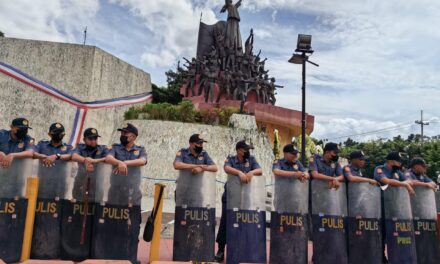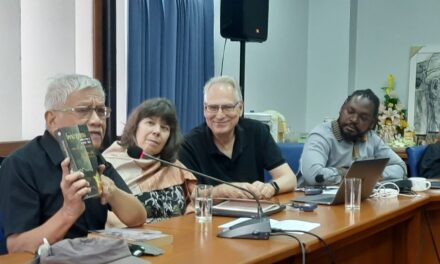The violent clashes between the United Front for Democracy Against Dictatorship (Red Shirts) protesters and the Thai government’s law enforcement forces on Saturday, April 10, 2010, that resulted in the deaths of 5 soldiers and 16
civilians, clearly challenge the non-violence rules of engagement that both sides committed to at the start of the Red Shirts’ mobilizations4 weeks ago.These regrettable events have caused serious concerns not only among the Thai public, but also among other pro-democracy and pro-peace people elsewhere.
The non-violence pledge is a significant, laudable step in the current polarized Thai society in order to avoid instigating an outright civil war between the Pro-Thaksin Red Shirts and the Anti-Thaksin People’s Alliance for Democracy
(Yellow Shirts) and others. It came about through public pressure on the government, the military and the Red Shirts themselves, because of lessons learned from the violent clashes among civilians, government forces and militias in recent years.
The April 10 confrontation between the military and Red Shirts protesters was no doubt due to the Government’s declaration of the state of emergency, decision to limit the setting up of protest camps to specific areas and sending government troops to drive away protestors from places where they, like all Thai citizens, have the right to gather lawfully. On the other hand, the Red Shirts’ provocative raids on the Election Commission and the Parliament earlier also escalated events towards violent confrontations. Both sides, therefore, cannot avoid and must take moral, ethical and legal responsibilities for the resulting deaths and injuries. Exemption from this responsibility is not acceptable if Thai society is to be able to resolve political conflicts in the future.
Being committed to non-violence also means that the conflicting parties have to be obliged to finding resolutions through negotiation. It is therefore imperative that the Government and the Red Shirts leaders get back to the negotiating table without delay. The immediate agenda of the talks must be to reaffirm the non-violence pledge and agree on how to prevent further deaths and injuries. If there is going to be a stand-off on the issue about when the parliament should be dissolved –currently in 9 months according to the Government and in 15 days according to the Red Shirts–then the stand-off should take place at the negotiating table.
On the issues concerning social justice and constitutional reform, the Thai public, who cannot be at this negotiating table, has the right to have a say and must be able to participate fully and equally in decision-making processes about these issues.
Finally, in order for Thai society to emerge from the current polarization of political affiliation, which remains a fundamental problem today, and to transform itself into a peaceful, equitable, and just society by democratic means, all spaces for airing different views and open debate are essential and must not be closed off by any groups. Any government that claims to be democratically elected must provide a political environment that allows people of differing political affinities to have the space and courage to debate their views without fear of being labeled this or that. The Thai Government must immediately lift the state of emergency, and withdraw all restrictions imposed on the media and the internet. Instead it must uphold the citizens’ right to constructive debate on all issues that are of concern to them, including the monarchy as an institution and the best way forward for Thai society.








